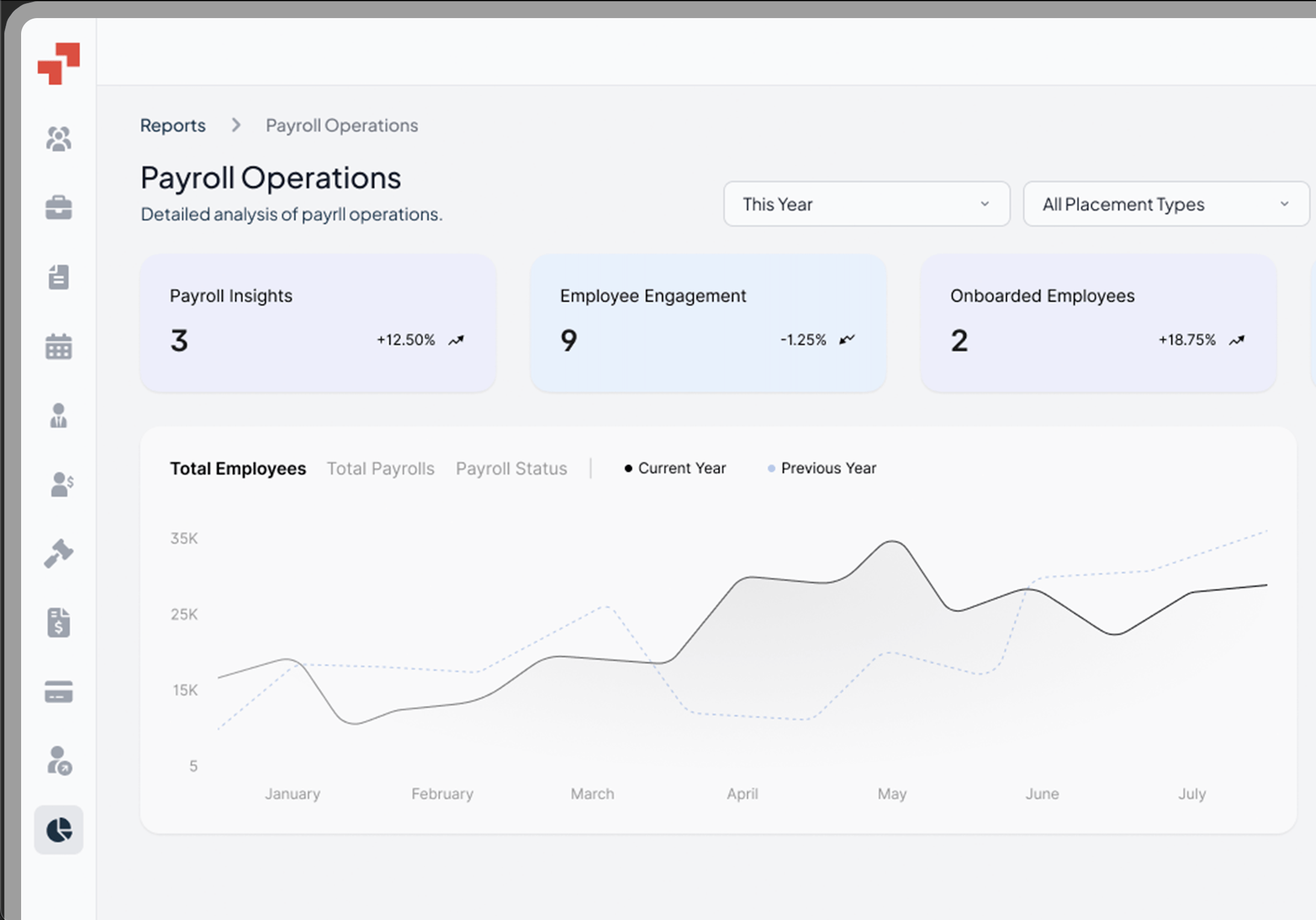Is your company employing globally?
If yes then you will need to understand everything related to the 13th and 14th-month pay given to employees along with their annual salary of 12 months. These additional salary payments, mandated in some countries, play a crucial role in employee compensation. It varies from country to country and the way it works depends on the employment law of the country.
In this guide, you will get to understand all the essential aspects of 13th and 14th-month pay. It covers the following points:
- What is a 13th and 14th Month Salary?
- How do you pay the 13th Month Salary?
- When is the 13th and 14th Month salaries given to employees?
- Who is entitled to 13th Month Pay?
- How is 13th and 14th Month Pay Calculated?
- Is 13th and 14th Month Pay Taxable?
- Countries with mandatory 13th and 14th Month Salary.
What is a 13th and 14th-month salary?
Providing international workers with a 13th-month salary is a common custom among businesses, in addition to their standard wages.
13th and 14th-month pay is nothing but additional remunerations given to the employees along with their annual 12-month salary. In some countries, paying the 13th-month salary is obligatory, while in others, it’s entirely discretionary.
- Implementation varies across countries, with some Latin American and European nations considering it a legal requirement.
- This extra compensation (13th and 14th month bonus) is often provided during the middle and at the end of the year.
Is 13th-Month Pay a Bonus Pay?
Although the 13th-month pay is commonly called a bonus, it’s not the same. Unlike a bonus, which is usually based on how well an employee performs or how long they’ve worked, the 13th-month pay is something required by law in many places. This means that employers have to give it to certain employees no matter how they’re doing at work or how long they’ve been there.
Is this mandatory or merely customary?
In some nations, employers are obligated by law to grant their employees a 13th-month pay annually. This extra compensation is non-negotiable and is enforced through local labor regulations. There could be severe consequences if these legal obligations are neglected.
These consequences include penalties, monetary fines, and even legal actions initiated by employees. So, it’s crucial to understand whether you are obligated to give 13th and/or 14th-month pay to employees or not. This helps you to:
- Avoid fines and penalties.
- Budgeting employees’ salaries effectively.
- Maintaining the face value of the company.
However, there are countries where the provision of 13th and 14th salaries is considered as customary i.e. it is not legally mandated. But still, many companies are adopting this practice of giving extra payments as a token of gratitude for the hard work, commitment, and consistent efforts of their employees throughout the year.
Though it is not legally mandated, failing to provide customary bonuses can have adverse effects on the organization, such as reduced employee morale and increased no. of challenges in attracting and retaining top-notch talent.
Is 13th-Month Pay Mandatory in the Netherlands?
In the Netherlands, the 13th-month pay is not a legal requirement, unlike in countries such as Greece, Spain, and Portugal. However, it has become a customary practice among Dutch companies, essentially making it an expected annual bonus for employees.
This bonus is not considered discretionary, as employees anticipate receiving it annually. Failure to provide the 13th-month pay can lead to dissatisfaction among staff.
There are exceptions, though. Employees paid per task or those without a formal employment contract may not be eligible for this annual bonus. This customary practice reflects the Netherlands’ commitment to fair employee compensation, even if it’s not mandated by law.
13th Month Pay in Belgium
In Belgium, eligibility for a 13th-month salary depends on the specific Joint Labor Committee governing an employee’s sector.
When offered, this annual bonus is typically paid at year-end, with some employers providing an additional half-month’s pay as a 14th-month bonus.
For employees joining or leaving mid-year, the 13th-month bonus is prorated, reflecting the partial employment period.
How do you pay the 13th Month Salary?
- Understand your country’s labor laws and company policies to identify eligible employees for the 13th and 14th-month pay.
- Calculate the thirteenth month pay and fourteenth-month pay as a percentage of the employee’s basic salary, typically 1/12th. Use PamGro’s Payroll Calculator to determine your employee’s salary or the estimated total cost of employment in over 100 countries.
- Adhere to company policies and local laws when scheduling payments, whether in a lump sum at year-end or divided throughout the year.
- Document payments accurately in your payroll system and ensure proper reporting on employees’ documents.
- Transparently inform employees about eligibility criteria, calculation methods, and payment schedules to avoid misunderstandings.
- Ensure compliance with local regulations and company policies.
When is the 13th and 14th Month Salaries given to Employees?
The timing for distributing additional month’s pay varies depending on the location of employment. While some countries disburse it towards the end of the calendar year, others follow the terms stipulated in the employment contract. The schedule for issuing the 13th and 14th-month salaries differs globally due to the absence of a standardized date, with the timing being influenced by cultural practices and holidays such as Christmas or Eid.
For example,
In the Netherlands, the timing of 13th-month pay varies. Typically, it’s distributed at the end of the year, serving as a financial reward. Notably, this payment is distinct from Christmas bonuses.
Some Dutch companies, however, opt to pay their 13th-month salary in May, positioning it as holiday pay. This strategic approach encourages employees to take summer vacations between June and September, providing a financial incentive for well-deserved breaks.
By offering 13th-month pay at different times, companies in the Netherlands demonstrate flexibility in rewarding their employees, whether as year-end compensation or a summer holiday boost.
Chinese companies distribute the 13th-month pay during the Chinese New Year festivities. If a 14th-month pay is applicable, it is typically given out during the summer months.
In Greece, 14th month pay is mandatory. One half is paid out in full for Christmas, the other is divided and paid out at Easter and in the summer. Likewise, in Saudi Arabia, a mandatory 13th month salary is paid on Eid al-Fitr. In China and Singapore, thirteenth salary tends to be paid out for Lunar New Year.
Who is entitled to 13-Month Pay?
- Certain employees may not be eligible, such as managers, public sector personnel, or personal service workers, as dictated by local regulations.
- Employees already receiving equivalent bonuses may not qualify for the thirteenth salary.
- Contractors, those on zero-hour contracts, and freelancers typically do not receive this additional compensation.
- Most salaried employees with employment contracts are entitled to the 13th-month salary, regardless of their employment arrangement.
- Companies may be required to provide 13th or 14th-month pay to employees based in countries where it’s compulsory, even if not mandated in the company’s home country.
- Understanding and adhering to labor laws in each country where employees are based is crucial for compliance and fair compensation.
How Is 13th and 14th Month Pay Calculated?
13th Month Pay Computation:
The computation of the 13th month’s pay varies across different countries due to local regulations and practices. Let’s delve into the diverse methods utilized in different regions:
- Conventional Monthly Salary Calculation:
To calculate the 13th month pay it is required to divide the total basic salary by 12 to find the amount owed for the 13th month. Essentially, it equates to one month’s salary for that year. However, any bonuses or other monetary benefits received during the year are excluded from the total basic salary.
If the annual salary of an employee is $72,000, then their 13th-month pay will be $72,000/12= $6000
- Division of Annual Base Salary:
In some countries, such as Italy or Brazil, the 13th month’s pay is calculated as part of the annual salary. In this case, the formula divides the total annual pay or base salary by 13 to establish the 13th month’s pay.
- Distinct Calculation Approaches:
Certain countries have more unique methods for computing the 13th month pay. For instance, in India, it is calculated as a bonus based on a percentage of the annual salary.
- Modified Calculation:
Argentina’s method, known locally as aguinaldo, entails paying the 13th month’s salary in two installments – June and December. The amount paid each time is typically 50% of the highest monthly salary earned in the months leading up to receiving Aguinaldo. This formula adjusts the 13th month’s pay based on the number of months an employee has worked.
- Understanding Local Formulas:
Employers need to comprehend the specific calculation method mandated by local regulations in the many countries, where they operate. This ensures precise computation and equitable compensation for employees.
14th Month Pay Computation:
14th month pay is computed based on employee’s basic monthly salary. It’s usually a full month salary given on the top of 13th month pay. To calculate the fourteenth salary, simply take basic monthly salary (excluding allowances and bonuses) and multiply it with the number of months an employee has worked for the company within a year.
Additional Information:
| Singapore | It is based on the overall performance of the company and is customary. |
|---|---|
| Spain | Both 13th and 14th month pay is mandatory. |
| Netherland | 13th month pay is considered as a holiday bonus/vacation allowance. |
| Hong Kong | 13th-month pay is not mandatory, it is customary to pay employees either in December or before the Chinese New Year. |
Payroll Solutions Unrivalled since 15 Years

Is 13th and 14th Month Pay Taxable?
The criteria of taxation of 13th month pay varies across different countries and it is necessary for employers to understand the tax implications to ensure adherence to rules and regulations thus preventing any severe consequences.
Here is an overview of how this matter is managed in various other countries and regions:
- Austria:
In nations like Austria, the 13th and 14th-month pay is indeed taxed, albeit at a notably lower rate of 6% compared to the standard tax rate. This reduced tax rate serves as an advantage for employees who receive these additional payments.
It is essential for employers to recognize these tax disparities, particularly when engaging in remote hiring or overseeing international payroll. Neglecting to fulfill tax obligations correctly can lead to non-compliance with local statutes, resulting in legal repercussions and fines.
Get The Ultimate Playbook for US Tech Startups Looking to Expand in Europe
Europe awaits. But compliance, hiring, & market fit?
PamGro’s got you covered.

Which all countries provide the 13th and 14th Month Pay?
EUROPE
| Country | Type | Notes |
|---|---|---|
| Austria | 13th and 14th salary | Received in May/June and October/November, the employees are taxed 6% of this special pay. |
| Belgium | 13th salary and Vacation bonus | Employees are given compulsory bonuses, especially during holidays while the other extra payment is departed yearly. |
| Greece | 13th and 14th salary | Paid over three months – half months in Easter and Summer holidays and a full month during Christmas holidays. |
| Italy | 13th and 14th salary | Required for some specific management positions and provided for under the Collective Bargaining Agreement. |
| Netherlands | Vacation bonus | Mandatory Vacation Allowance 8% of Annual Salary – One month’s wage, on average, must be provided. |
| Portugal | 13th and 14th salary | They are paid during their annual leave which is usually taken in June and the end-of-year bonus which is also paid in December. |
| Spain | 13th and 14th salary | Paid in July and December. It may be pro-rated for payment through monthly installments extendable to twelve consecutive months. |
| Sweden | Vacation bonus | 0. 43% of monthly salary for each day of the holiday taken; 12% extra on any bonuses, commission or other sorts of pay. |
LATIN AMERICA
| Country | Type | Notes |
|---|---|---|
| Argentina | 13th salary | To be paid in Equal monthly installments but at the frequency of every June and December. |
| Bolivia | 13th salary and 14th salary | Tax-free Christmas bonus and second holiday for “The Effort” if Bolivia’s GDP growth is > 4.5%. |
| Brazil | 13th and Vacation bonus | Christmas bonus paid in June & December and a holiday bonus. |
| Colombia | 13th salary | Half a month paid in June; half a month paid in December. |
| Costa Rica | 13th salary | Paid in December. |
| Dominican Republic | 13th salary | Paid in December. |
| Ecuador | 13th and 14th salary | It can be paid in parts or a lump sum. |
| El Salvador | 13th salary | Paid in December. |
| Guatemala | 13th and 14th salary | Paid mid-year and at year-end. |
| Honduras | 13th and 14th salary | Paid mid-year and at year-end. |
| Mexico | 13th salary | Christmas bonus (Aguinaldo) paid in December. |
| Panama | 13th salary | Paid in 3 parts in April, August, and December. |
| Paraguay | 13th salary | Paid at year-end. |
| Peru | 13th and 14th-month salary | One month in July; 1 month in December. |
| Uruguay | 13th salary | Half a month paid in July and half a month paid at year-end. |
| Venezuela | 13th salary | Paid at year-end. |
ASIA
| Country | Type | Notes |
|---|---|---|
| Indonesia | 13th salary | Mandatory religious holiday bonus paid before the holiday. |
| Philippines | 13th salary | Paid in December. |
| India | 13th salary | A % of the annual wage is paid within eight months of the end of the financial year. |
Hire the Best Talent, Anywhere









